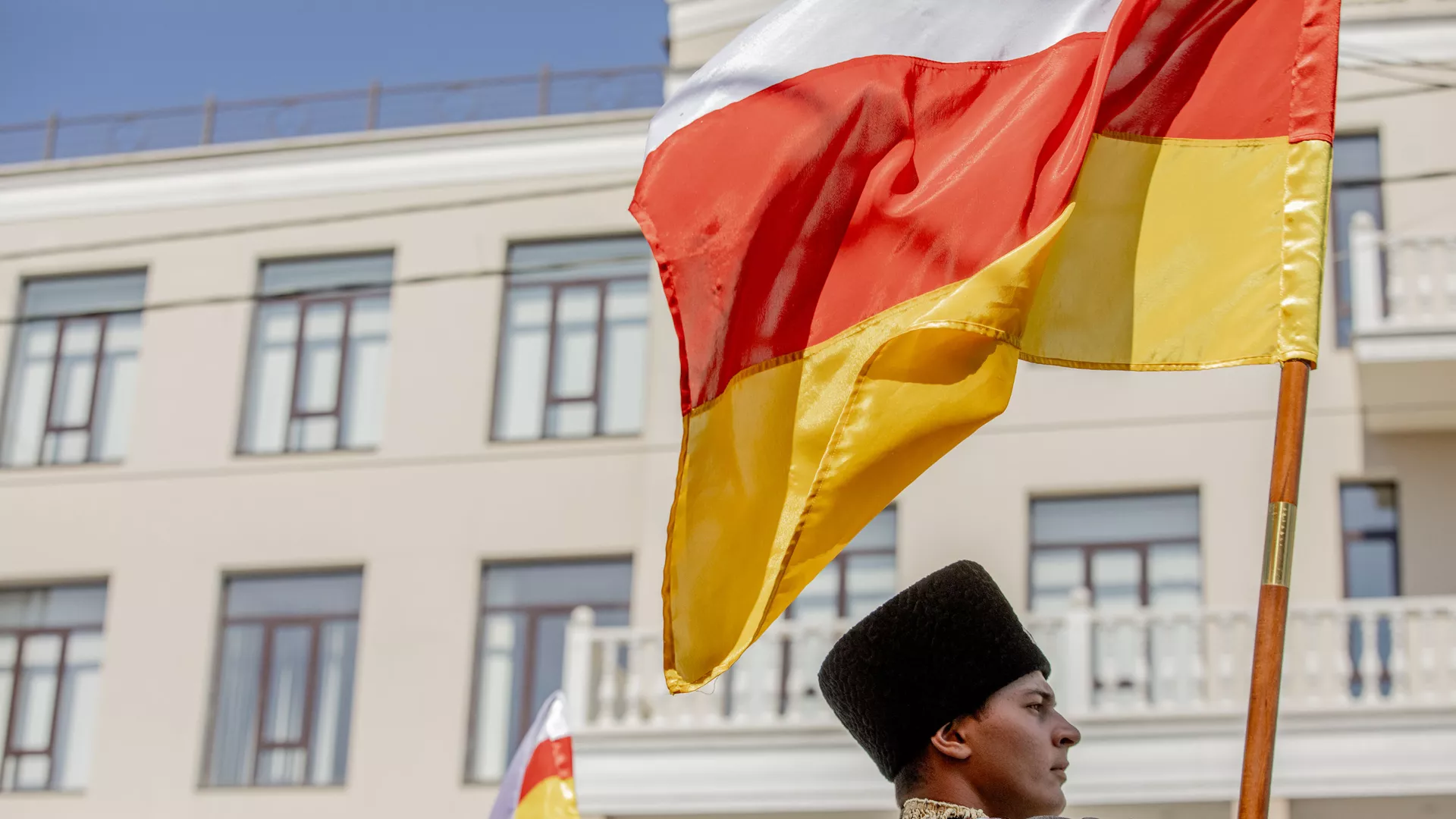
Moscow Will Only Consider Absorbing South Ossetia Amid a Georgian Rapprochement With NATO
Moscow Will Only Consider Absorbing South Ossetia Amid a Georgian Rapprochement With NATO
Executive Summary:
- South Ossetia wants to join Russia for at least the fourth time now but will not hold a referendum until Moscow agrees.
- The Kremlin’s decision rests less on the situation in South Ossetia than on how such an action would affect its relations with Georgia, the South Caucasus more generally, and the West.
- Rumblings about an imminent Russian absorption of South Ossetia appear to be a Moscow-led effort to warn Tbilisi and the West about the consequences of rapprochement.
Even before Russian military action in 2008 allowed South Ossetia to break away from the Republic of Georgia and become an unrecognized state, the separatist region wanted to become part of Russia. Regional officials sought to do this either by rejoining North Ossetia, which has remained within the Russian Federation, or on its own (see EDM, March 27, 2006). (This marks at least the fourth time since the Russian invasion of Georgia, on the three earlier occasions, see EDM, June 18, 2014, April 15, 2016, June 2, 2022). The breakaway region believes that the time to move is now and is currently in close discussions with Moscow about the modalities of such a referendum (Vedomosti, March 17; Versia, March 17). South Ossetian leaders acknowledge they will not move in that direction until Moscow agrees (Pravda.ru, March 17). The Kremlin’s decision on that point, as in the past, hinges on Russian relations with Georgia and the West. In the past, Moscow concluded that absorbing South Ossetia would harm Russian interests more than help them. Still, with Georgia and the North Atlantic Treaty Organization (NATO) discussing closer ties and relations between Russia and the West at a low due to Moscow’s war against Ukraine, the Kremlin’s calculus may have changed (News.ru, March 18). If that is the case, the possibility that Russia will agree to a referendum in South Ossetia and move to annex the Georgian territory is far greater.
The reports that South Ossetia has raised the possibility of a referendum on its inclusion in the Russian Federation have sparked a firestorm of commentaries in Moscow. Russian nationalist and imperialist writers and politicians enthusiastically support the idea, just as they have earlier (Vedomosti, August 23, 2023; Forum.msk.ru, March 17; Versia, March 17; Pravda.ru, March 17; Akcent, March 18). These observers have suggested that such a move is necessary because Georgia, despite the recent warming of ties with Moscow, is still a problem and moving ever-more closely to NATO, threatening Russian and South Ossetian interests (News.ru, March 18; Nasha Abkhazia, March 18). This has encouraged those officials in both capitals who want South Ossetia to become part of the Russian Federation to think their time has come. Still, others suggest that their optimism is likely misplaced and that Moscow’s decision on this subject depends not on South Ossetian aspirations and enthusiasm but on the Kremlin’s calculation of its interests far beyond the borders of the largely unrecognized statelet.
The current leadership in South Ossetia mostly favors unification with Russia, though not everyone in Tskhinvali does. Some skeptics question whether any new benefits would come from formally being part of Russia that the statelet does not already enjoy. South Ossetia’s “foreign minister” Akhsar Dzhioev has said that Russia’s position is already similar to NATO’s regarding its members—namely, that “an attack on South Ossetia would be considered as an attack on Russia” (State Information Agency of the Republic of South Ossetia, March 18). Others worry about what role South Ossetia would have inside Russia: whether as part of North Ossetia, as a republic of its own either within the Russian Federation of the Russian-Belarusian Union State, or as a federal territory ruled directly from Moscow, similar to portions of occupied Ukraine. These possibilities could have negative consequences. (For more detailed analysis, see Window on Eurasia, July 16, 2022, August 14, 26, 2023.) Still, other South Ossetians fear that Moscow would be less willing to continue providing massive cash infusions if their republic were absorbed. This funding has kept incomes higher than they would be otherwise but has left Tskhinvali with a massive debt to Moscow (Window on Eurasia, July 20, 2021; Obshchestvennaya sluzhba novostey, April 21, 2023).
In Moscow, opposition to absorbing South Ossetia into the Russian Federation is much stronger. The Russian opposition says, at a minimum, any suggestions of annexing South Ossetia in the near future are almost certainly overblown unless dramatic changes take place in Georgia’s and the West’s policies. Some Moscow commentators dismiss Tskhinvali’s talk about unification as nothing more than attempts by the South Ossetians to attract more attention to themselves and more money. They also assert that the Kremlin has no interest in taking this step, at least until the end of the war in Ukraine (Svobodnaya Pressa, March 17). These analysts add, “The Republic of South Ossetia de facto, even without [absorption], is already viewed by many as a subject of the Russian Federation.” Consequently, why rock the boat?
Perhaps the most compelling argument in Moscow against a South Ossetian referendum on joining the Russian Federation comes from Vladimir Novikov, an influential specialist on the Caucasus at the Institute for Countries in the Commonwealth of Independent States. He argues, “At the present time, the inclusion of South Ossetia within Russia does not correspond to the interests of the Russian Federation since it could lead to the opening of a second front at a time of the special military operation” in Ukraine (The International Affairs, March 17). Additionally, Novikov contends, “If South Ossetia were to become part of Russia now, that would lead to a change in the domestic political situation in Georgia. Tbilisi would have to declare war on Russia; otherwise, the government there would be swept away by revanchist forces. And in addition, South Ossetia itself will suffer the most from aggravation of the situation and have to experience again what it did in 1991 and in 2008.”
As long as Moscow has hope that relations with Georgia will improve, it is unlikely to allow South Ossetia to hold a referendum on becoming part of Russia. The Kremlin appears to be more than pleased with the already close ties between Moscow and Tskhinvali. It is unlikely to risk any change in the current arrangements that have allowed Georgia to become, in part, a transit route to end-run Western sanctions (Izvestiya, March 18; Sputnik South Ossetia, March 19, 21). If Russian relations with Georgia cool, mainly due to rapprochement between Tbilisi and NATO, the situation will change. South Ossetia may finally hold its referendum and become part of Putin’s dream of an expanded Russian Federation.


